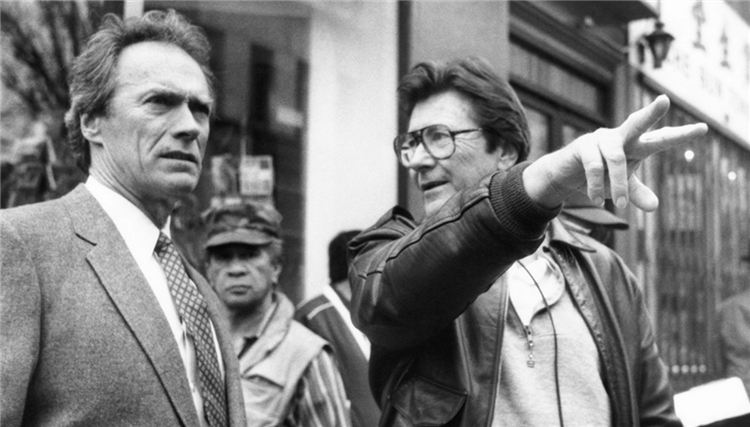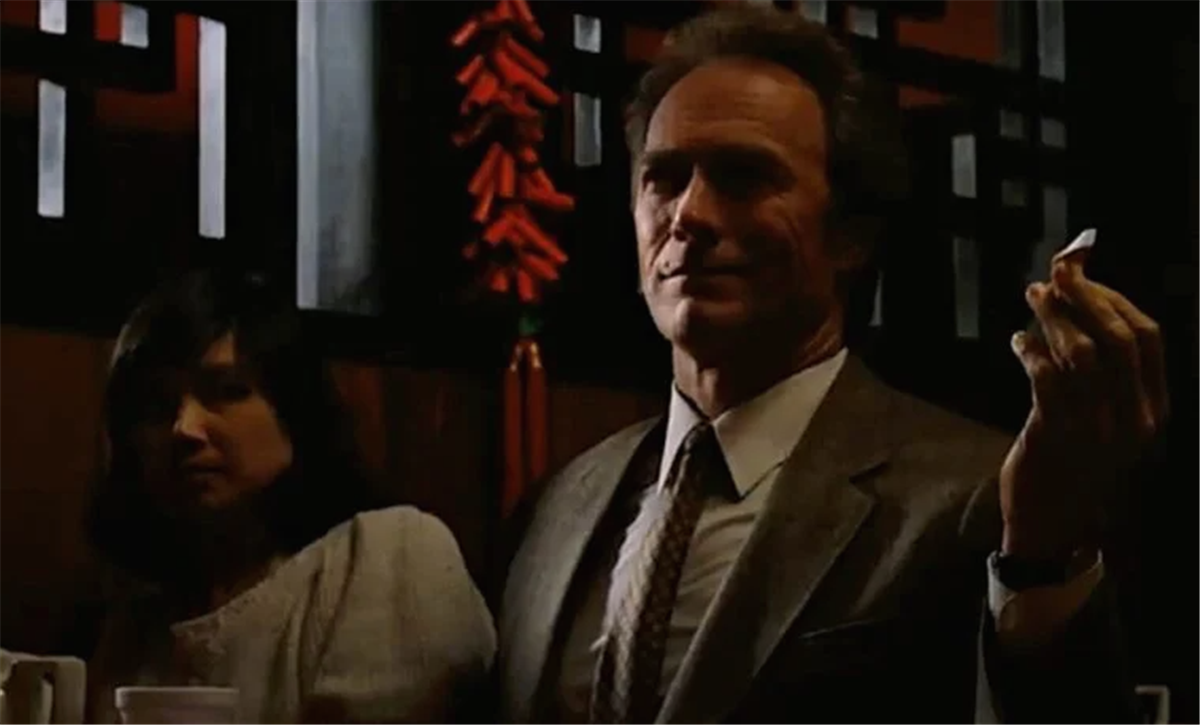“The Dead Pool” (1988) is among the wildest, most interesting of Clint Eastwood’s late 80’s action movies.
It’s not just because it presented (as of this writing) his final installment and performance as San Francisco’s itchy trigger-fingered cop, “Dirty” Harry Callahan.
A convoluted plot is presented in the prologue through newspaper clippings and TV anchormen explaining that Callahan is on bad terms with a mobster. There’s also a popular but strung-out rocker and a cluster of local San Franciscans who are on the death list of the title.
The cast is jaw-dropping.
In addition to Patricia Clarkson as a driven reporter who hounds Callahan, there’s also Liam Neeson (the film’s second lead) as Peter Swan, a heartless filmmaker, who we meet while directing a music video for a movie that rips off “The Exorcist.”
The star of this video is Johnny Squares, played by Jim Carrey, before “In Living Color” but at the post-“Once Bitten” period of his career.
Cinephiles take note: you won’t witness a more surreal sight than that of Neeson, sporting a phony ponytail and a half-there British accent (“You know, buns in the seats, love!”), angrily directing Carrey on the set of “Hotel Satan.”
Clarkson, a year after standing out playing the wife of Elliot Ness in “The Untouchables” (1987), also exudes a talent and presence that indicates a long career ahead.
Give Eastwood and director Buddy Van Horn credit for recognizing the enormous talent in Carrey (who briefly shows up as a standup comedian in the subsequent 1989 Eastwood/Van Horn collaboration “Pink Cadillac”), though, as evidenced by how they utilized him, neither was likely certain how to properly showcase him.
Since Carrey was best known for his wild stand up at this point and headed for what seemed like a career comparable to Rich Little, the actor’s dark work here impresses for being so unhinged; It’s actually a better fit for the material than later career stretches “The Number 13” or “Dark Crimes” were.
There’s also the matter of the music used as Squares’ own: of all things, it’s “Welcome to the Jungle” by Guns N’ Roses, who were just warming up when this came out. The band also makes a quick, what-me-worry cameo at a later Neeson-helmed video shoot (a missed opportunity is never giving us a look at how presumably bonkers the completed “Hotel Satan” would wind up).

The song is used prominently in the trailer, too. Seriously, we’re never going to see Neeson, Carrey and Guns N’ Roses together in a movie again!
Giving Callahan an Asian-American partner is a mixed bag: initially, Evan C. Kim’s likable performance as Officer Al Kwan provides a nice contrast to Eastwood’s unceasing gruffness. However, this being the 1980s, the movie waits a whole 10 minutes before bringing on the jokes about fortune cookies.
A pan flute even plays over the soundtrack (and, of, course, Kwan knows Kung Fu- leaving no stereotype unturned).
Van Horn’s best touch is a wonderful car chase, in which Callahan and Kwan’s police car is chased by a highly unusual vehicle: it’s a crisply edited sequence, with no music, superb sound effects and some funny close ups to evoke a parody (or, as Swan would call it, a “homage”) to arguably the greatest cinematic car chase from “Bullitt” (1968).
In the opening scene of the franchise’s fifth installment, Callahan shoots assailants in the head and even one in the back (to be fair, they try to blow him away while he was driving home from work).
This far into the series, Callahan not only possesses the itchiest of trigger fingers, but Eastwood seems all too happy to make Charles Bronson’s vehicles seem tame by comparison. The shootouts are brutal, though the soundtrack seems to be reminding us that Callahan is the “good guy,” even as he blows away punks at very close range.
“The Dead Pool” arrived a year after “Lethal Weapon” gave the action/cop movie genre a major shot in the arm and the same year “Die Hard” redefined the blue-collar action hero. Considering that this series began with Callahan taking down an obvious, effective stand-in for the Zodiac killer in “Dirty Harry” (1971), it’s interesting that the character would wind up, like Martin Riggs and RoboCop, among as much broken glass, empty gun shells and spilled blood as the villains he pursues.
“The Dead Pool” wasn’t written or directed by Eastwood, but goes after young, dumb types (particularly the MTV generation and the onslaught of teen-baiting horror movies) in a way that seems in line with “Gran Torino” (2008) and “The Mule” (2018).
Eastwood’s opening line, “Get the hell out of my lane,” even sounds like it could have been used in a later vehicle.
There’s also a criticism of tabloid journalism, which, at this point, was associated with the likes of Geraldo Rivera and Morton Downey, Jr. It may have landed firmer if this franchise wasn’t so proudly disreputable: the appeal of Callahan is how “Dirty” he is, and the compelling and troubling nature of the series is how this cop is celebrated for his abuse of power.
America’s favorite outlaw has come to Fox Nation! Head to Fox Nation to stream Clint Eastwood’s biggest films, like Dirty Harry, The Dead Pool, and more! https://t.co/GuLGKtz2uh pic.twitter.com/gOgqxFH8RL
— Fox Nation (@foxnation) August 2, 2021
If Eastwood decides to return to the character (and let’s face it, he absolutely still could at this point), the result would be as controversial as it was in the 1970s.
It would be fascinating to see how Callahan would fit in, let alone feel about, contemporary America.
In his final Callahan vehicle, the character is cranky about modern times and what the youth of the late 20th century consider “entertainment.”
The central mystery is effective, as the culprit of the villain seems painfully obvious (even more so than in the 2002 “Blood Work”, with a mystery one could solve just by reading the cast list)- there’s a smart visual misdirection to throw us off.
While the series was looking long in the tooth by 1988, certainly in comparison to the bigger and even more socially irresponsible antics of officers Riggs and Murtaugh, the saga didn’t go soft or lack innovation for its final installment.
“The Dead Pool” isn’t as iconic as the prior Callahan thriller, “Sudden Impact” (1983), which is the only one to feature Eastwood’s signature line, “Go ahead, PUNK, make my day.”
Yet, that film’s scuzzy rape and revenge plot, circling around Sondra Locke’s tortured character, makes for the ugliest entry in the series. The gritty original “Dirty Harry” (1971) and the better than remembered “The Enforcer” (1976), are my favorites in the series.
However, as strong as those entries are, they lack the perverse thrill of Neeson shouting at Carrey on the set of “Hotel Satan” while a mannequin of a Reagan McNeil stand-in catches fire as the head spins.
At 35-years old, Eastwood’s (current) last stand at Callahan is certainly the wildest.
